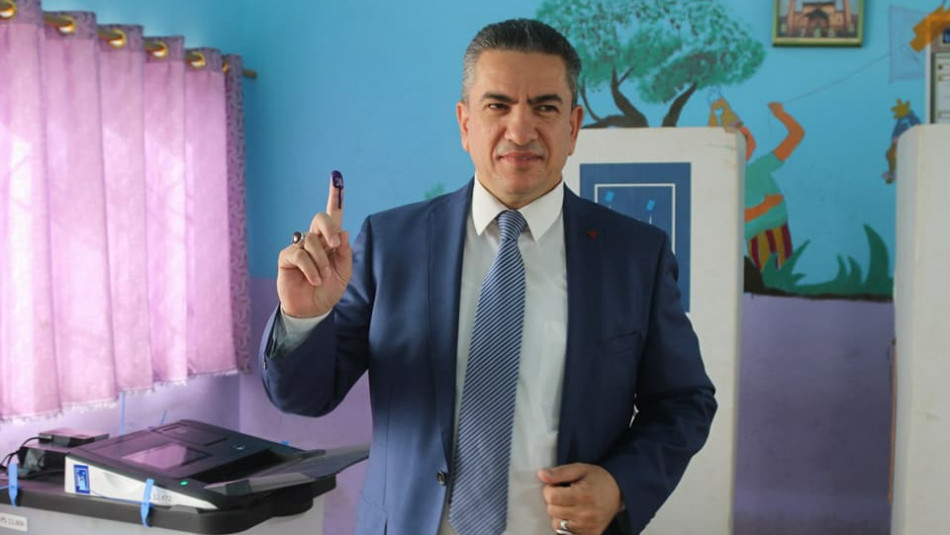Even though the political sphere is quiet in Iraq due to the spread of the coronavirus, behind the scene meetings have remained intense. Still, those who reject the designation of Adnan Alzurfi to form the new Iraqi government are attempting to form a coalition to block the prime minister-designate from successfully forming his cabinet. On the other hand, Alzurfi’s allies are vigorously trying to secure enough votes in parliament to attain confidence for Zurfi’s cabinet.
“Negotiations to form the government continues, but so far the ministers of Alzurfi’s cabinet have yet to be chosen,” said Star Jabari, a parliament member from the Al-Hikma movement.
The reason for lack of consensus on Alzurfi’s cabinet is the disagreements that the Shia factions have among themselves.
On March 17, Iraqi President Barham Salih designated Adnan Alzurfi, former governor of Najaf, to form the new Iraqi government. The designation created a division between the Iraqi Shia factions in the Iraqi Council of Representatives.
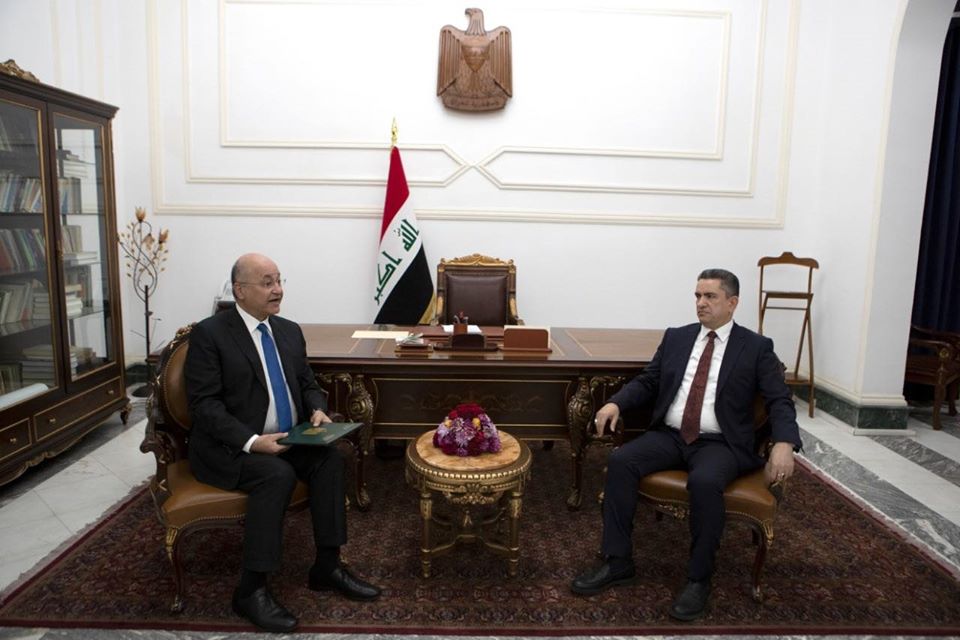
Najaf, Adnan Alzurfi after casting his vote in the federal elections, May 2018. Photo: Alzurfi Media
Fatih Coalition Stance on Alzurfi
Fatih Coalition, led by the head of Badr Organization, Hadi al-Amiri, consists of most of the Shia factions that have militia forces, has insisted their stance is clear on rejecting Alzurif, also mentioning that there is no negotiations and understandings between them.
Ahmad Alasadi, the spokesperson of Fatih Coalition, in a tweet, has said that “they only bet on the implementation of the constitution and the preservation of parliamentary majority.”
In the tweet, He has demanded the reservation of parliamentary majority to nominate a candidate and stated that the president has the right to designate.
In the meantime, Siham Musawi, a faith coalition parliament member (MP), has emphasized that he has no choice “except for withdrawing before losing,” and said, the factions that oppose Alzurfi believe that his designation is a jump over “Shia House.”
“Those who refuse Alzurifi are Fatih Coalition, State of law, and AlNahaj National,” Musawi mentioned in a statement, “Alzurifi challenge toward these fractions and his continues negotiations is a challenge to Shia majority and the symbol that the government cannot be formed without their consent.”
He also explained that these Shia blocs rejects his designation and work on all the possibilities to stop him from heading the government as well as ask him to withdraw.
Fatih Coalition has 47 seats, followed by the State of Law with 25 seats, National Contract with 18 seats, led by Iraqi National Security Advisor Falih Al-Fayyadh, and Nahaj National faction with eight seats, collectively these factions have 98 out of 329 seats in the parliament who are against Alzurfi designation.
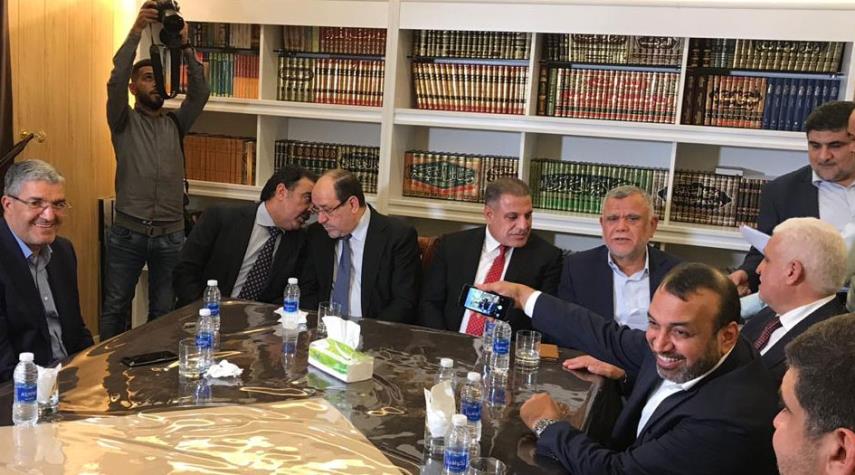
Baghdad, a meeting between State of Law and Fatih Coalition to form a parliamentary bloc, September 3, 2019. Photo: Afaq TV
The Formation of the Government
“The signs are indicating that arranging a session to vote on Alzurfi cabinet will fail as it happened to his predecessor [Mohammed Tofik Allawi], especially when the people rejecting him are increasing that now include Kurds and Sunni,” said Odai Sha’lan, a Faith MP.
“There is should be consent among the Shia blocs on supporting a prime minister-designate before starting a negotiation with him because the position belongs to Shia share,” he said.
Iraqi president has been accused of violating article 76 of the constitution, which states that the biggest bloc will nominate a candidate for the premiership.
“The constitutional violation that happened in the designation of Alzurfi did not take the demand of the people and Marjayiah into consideration, and it will not go away easily. We will have a tough stance to hold anyone accountable who are behind the violation.”
Three Shia Blocs Support Alzurfi
Alzurfi has ten more days to secure confidence from the Iraqi Council of Representatives to be able to form the government as the constitution sets 30 days to the prime minister-designate to form the government from the date of his or her designation.
Some political sources told KirkukNow that “he will not need the support of those stubborn political blocs.”
The source explained that the division among the blocs rejecting Alzurfi is in the interest of Alzurfi
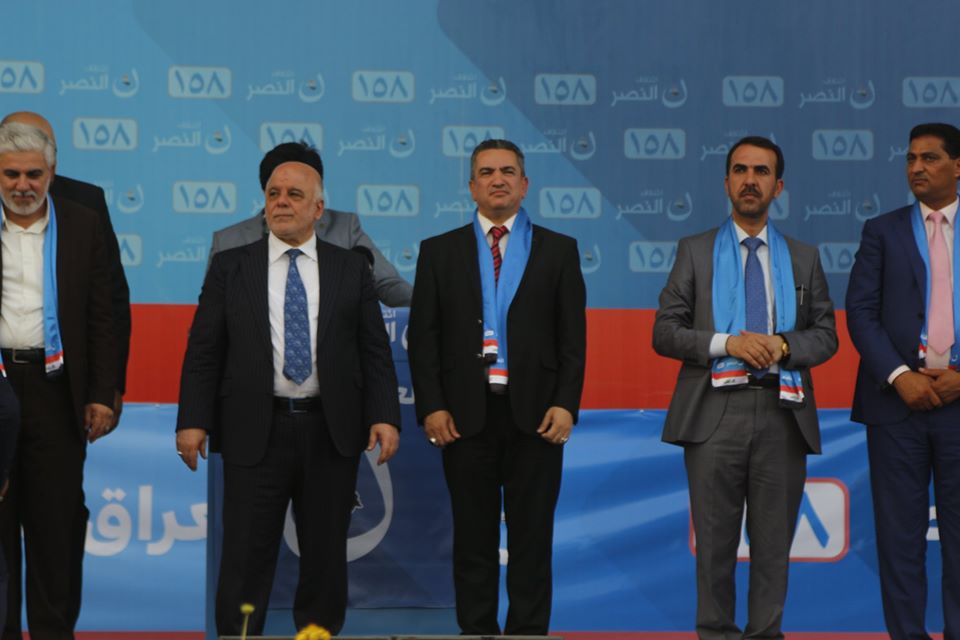
Najaf, Haider Abadi, former Iraqi prime minister, and Adnan Alzurifi, March 3, 2019. Photo: Alzurifi Media
Alla Ruba’I, an MP of Sairun bloc, said, “part of the disagreement among the Shia house belongs to the fact that those bloc rejecting Alzurifi perceive his strength and are afraid of a prime minister who stands against their interest.”
In the last 17 years, the nomination of a person for premiership has been done per agreements among the Shia political parties, but this time the designation of Alzurif did not depend on such agreement because the division exists currently between the Shia blocs.
In the meanwhile, Nada Shaker Jawdat, an MP of Nasr bloc, stated that Alzurif has reached the final stage of finishing the formation of the cabinet; he has reached the finalization of his talks with the political actors, mainly the Shia on the government formation.
The blocs that back Alzurifi are Sairun bloc led by Muqtada al-Sadr with 54 seats, followed by Nasr bloc with 24 seats, and Al-Hikma with 19 seats, meaning 97 MPs from Shia blocs support Alzurifi.
Jawdat thinks that the designation of Alzurifi has become “de facto,” mainly because of the lack of agreement between the political blocs to nominate a person for the positions.
She thinks the rejection was not against Alzurifi but instead the mechanism that President Salih used to designate a candidate.
She also said that the talks Alzurifi has held with the political blocs were productive
Kurds and Sunnis are waiting
The Kurdish blocs are waiting for the end of the disagreements among Shia blocs, according to Emad Bajalan, a Kurdistan Democratic Party (KDP) leader. “The Kurdish factions will have positive reasons towards any candidate who respects the constitutional rights of the Kurdistan Region, as an entity.”
The Kurdish factions, including the KDP, led by former Iraqi Kurdistan President Masoud Barzani, insist on the unified stance from the Shia bloc on the characteristics of the prime minister candidate. “The Kurdish blocs have no red line or veto on any candidates, but we wait for the Shia blocs to determine the candidate they all support.
He also said, “we do not doubt the ability of the prime minister-designate to convince the other blocs, but so far he has not been able to convince his opponents.
Bajalan explained that even though the Shia blocs are rejecting him, they have yet to choose an alternative, either again giving confidence to Adil Abdul-Mahdi, the outgoing prime minister, or nominating another person.
In November 2019, the most senior Shia cleric in Iraq, Ali al-Sistani, asked the Council of Representatives to end its support for the government after two months of nationwide protests. The day after his call, Adil Abdul-Mahdi, outgoing prime minister, submitted his resignation letter to the parliament.
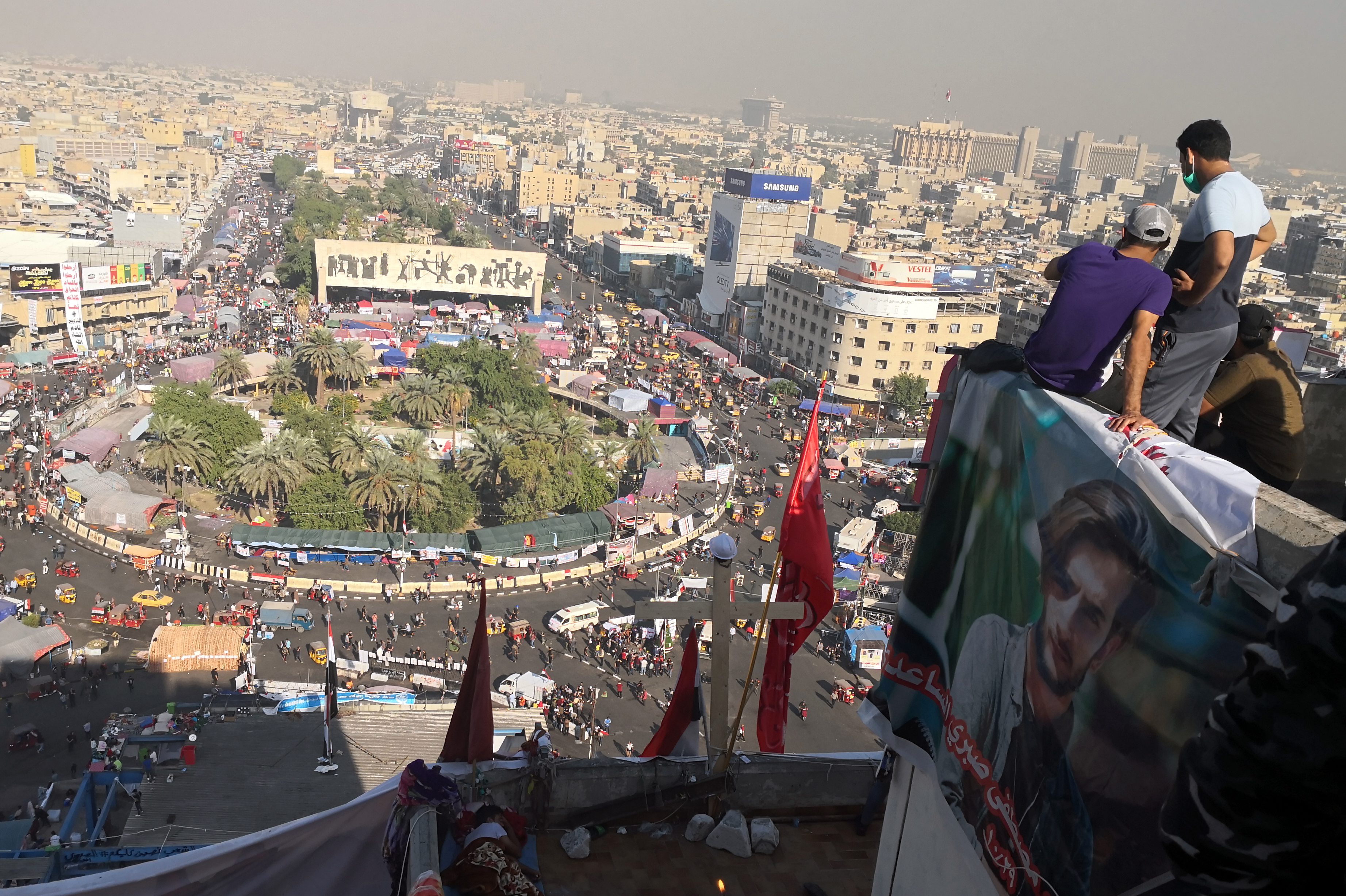
Baghdad, a picture of the protests over the Turkish Restaurant, the demonstrations icon, November 2019. Photo: Ahmad Msalha
Bajalan added, “today the ball in the Shia parties court, we the Kurdish blocs are worried about whether the cabinet will respect the constitutional rights because the country is moving toward dangerous security, economic and health situation. We have never been and will never the reason for deadlock or messing up the situation or supporting one side at the expense of another.”
At the same time, Haider Mulla, former MP form Sunni National Dialogue, states that Alzurifi can easily secure parliament confidence due to lack of strong evidence against him form those parties opposing him.
“There a clear parliamentary majority who are with this man and support him, especially because he tries to achieve the goal everyone has, which is facing the new challenges including the collapse of oil prices and health crisis emerged due to coronavirus. These are beside the promise to hold early elections.”
The Iraqi Council of Representatives can convene in the next ten days to vote on Alzurifi cabinet. Whether Alzurifi can secure enough votes or not is a question that will be answered in less than two weeks.

